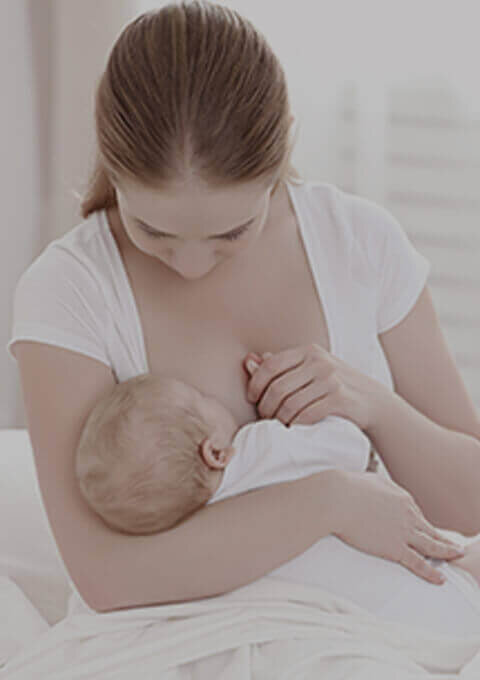During infection, breast-feeding is advisable, even during fever and runny nose. It protects the baby against infection. However, there are diseases that prevent breast feeding. Check when you can, and when you should not feed naturally.
You can breastfeed even if you:
suffer from various viral and bacterial infections of the respiratory tract (e.g. tonsillitis, flu)
suffer from diabetes, hyperthyroidism or hypothyroidism
are a carrier of hepatitis A or C, and even B after vaccinating the baby
suffer from mastitis (frequent breastfeeding is indicated)
Treatment methods are very important. Some medicines can be dangerous for the baby, and if possible, should be replaced with safe alternatives. Use natural remedies: herbal inhalations of chamomile, sage and mint, raspberry tea, onion syrup, ginger, lemon (if your child is not allergic to citruses). As far as painkillers are concerned, you can safely take those based on paracetamol or ibuprofen. Most antibiotics are also safe during breastfeeding, but you should never take them without consulting your doctor.
During breastfeeding you must not take aspirin, metamizole, medicines containing pseudoephedrine. Anticancer and radioactive drugs are also forbidden. Before taking any medication you should consult your doctor.
You can not breastfeed if you:
suffer from active tuberculosis, prior to the implementation of effective treatment (breastfeeding is possible after 4 weeks of treatment)
are infected with HIV
have infectious lesions in the breast resulting from e.g. herpes or syphilis
are infected with cytomegalovirus - with this disease you can not breastfeed a prematurely born baby, but there are no contraindications for breastfeeding a full-term baby.
Are you pregnant and intend to breastfeed? Or maybe you have already given birth and are looking for information here because of problems with breastfeeding your baby? Sometimes, something that seems natural is not easy, ...
Can I breastfeed after a C-section? Will I have milk? Will my baby know how to suck?" These questions often trouble future mothers with an elective C-section. We would like to convince you that a C-section is not an obstacle ...
Many mums worry whether their breasts produce enough milk. The doubts usually occur when a child often cries, demands breast more frequently than usual, breasts become soft and you do not need breast pads anymore. However, ...
To achieve successful beginnings of breastfeeding, you will need self-confidence, patience, support from the loved ones and getting acquainted with a handful of tips that will allay fears and doubts.
Although many mums worry about it, breastfeeding does not make breasts unattractive. Just take care of them properly choosing the appropriate underwear, cosmetics and products for lactation hygiene.
The initial failure of breastfeeding may be associated with sore, inverted or flat nipples. Explore solutions to help yourself overcome these problems.
During feeding the baby sometimes swallows air that accumulates in the digestive tract and can cause colic, bloating and posseting. Therefore, after each feeding you should encourage your child to burp. We show 3 burping ...
What is the difference between colostrum and the proper milk? How to latch? We ask ourselves these questions at the beginning of feeding. Here you will find the answers.
Breastfeeding is a wonderful gift that nature gave to women. A gift both for the child and for mothers themselves. Explore the benefits of breastfeeding.
A popular opinion says that breastfeeding is a great sacrifice on a woman's part for a baby's good. The truth is this way of feeding is advantageous not only to the baby but also to the breastfeeding mum.
